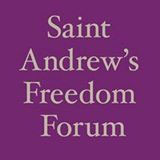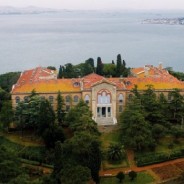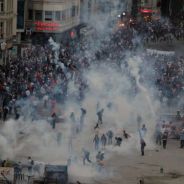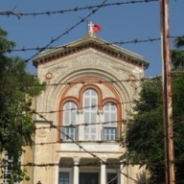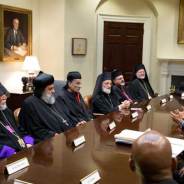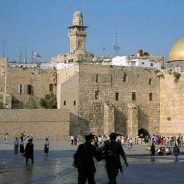Blog
The Annual Congressional Saint Andrew’s Human Rights and Religious Freedom Reception
Saint Andrew is the patron saint of the Ecumenical Patriarchate of the Orthodox Church. In November, the month of the Feast Day of Saint Andrew, the Congressional Human Rights and Religious Freedom Reception is convened to raise awareness on the state of religious freedom, human rights and democratic liberties the world over and as well to acknowledge the continuing struggle of the Ecumenical Patriarchate to secure full rights and dignity within modern day Turkey. The Ecumenical Patriarchate is the Holy Center of the Orthodox Christian Church, which is the world’s second largest Christian Church, larger than the Anglican Church and second only to the Catholic Church. The Ecumenical Patriarch is the spiritual leader of the world’s 300 million Orthodox Christians, including 6 million Americans. The title, “Ecumenical,” signifies the Ecumenical Patriarch’s preeminent role in the spiritual guidance of the Orthodox Church. His All Holiness Bartholomew is the current Ecumenical Patriarch, serving as the 270th successor to Saint Andrew. Sadly, governing authorities of the Republic of Turkey have for more than a century denied fundamental religious freedom to the Ecumenical Patriarchate and continue to deny fundamental human rights and dignity to the Orthodox Church. To learn more about the Ecumenical Patriarchate you may visit –...
read moreA Message From Andreas Akaras Welcoming You To The Saint Andrew’s Freedom Forum
Dear Friend, It is my pleasure to welcome you to the Saint Andrew’s Freedom Forum website. Please take your time to explore our site and send us your comments. We welcome and encourage your feedback. We invite you to join us on Facebook at Saint Andrew’s Freedom Forum or LinkedIn at Saint Andrew’s Freedom Forum. You may also connect with our Communications Administrator, Adam Omega, on Facebook and LinkedIn. Feel free to send us an email with your thoughts or any other matter to adam@saintandrewsfreedomforum.org. From time-to-time you may receive a communication from our Director of Social Media, Violet Tsagka, or our Communications Director, Adam Omega. Be sure to tell your friends to visit us as well, we are eager to expand the dialogue here at the Saint Andrew’s Freedom Forum! Sincerely, Andreas N. Akaras, President Saint Andrew’s Freedom...
read moreFreedom of information needed for public debate, and to restore calm – Reporters Without Borders
Full and responsible news coverage is more necessary than ever in Turkey, now in the throes of the most violent rioting in a decade. Reporters Without Borders calls for the release of media workers currently in police custody and urges the authorities to do what is necessary to protect journalists and facilitate their work. Türkçe / Read in Turkish The Jihadi organization Islamic State’s siege of Kobane, Syria’s third biggest Kurdish city, is the source of the current tension in Turkey. Around 30 people have been killed in clashes between political groups or clashes with the police since 7 October. At the same time, it has become very difficult for journalists throughout the country, especially in the southeast, to cover the unrest. Violence against journalists At least four journalists have been attacked or injured during pro-Kurdish, Islamist or nationalist demonstrations in the past few days. Necati Savas, a photographer with the daily Cumhuriyet, was injured in the head in Ankara on the afternoon of 7 October by a teargas canister fired by the police. After projectiles fired by rioters in the Okmeydani district of Istanbul injured Sebnem Coskun, a photographer with the partly state-owned news agency Anatolia, and cameraman Melik Firat Yücelon 7 October, doctors ordered three days of medical leave for both. Hayat TV reporter Duygu Ayberwas injured by police near Istanbul’s Taksim Square on 6 October. Four reporters for pro-Kurdish media – Bisar Durgut and Nihat Kutlu of the daily Azadiya Welatand Beritan Canözer and Sarya Gözüoglu of the women’s news agency JINHA – sustained stab wounds when attacked by demonstrators in the southeastern city of Diyarbakir on 2 October. Durgut was rushed to hospital with no fewer than eight knife wounds. The situation is especially tense near the Syrian border. A BBC minibus caught fire when police fired three teargas grenades at it near a border post in Mürsitpinar (in Suruç district), which is very close to Kobane. The minibus’ occupants – six people including Paul Adams and Piers Scholfield of theBBC – were able to take cover. After visiting the border, a delegation from the Turkish coalition Freedom for Journalists (GÖP)presented a report on 8 October, denouncing the police violence experienced by many journalists in the border region. Esra Ciftçi, a reporter for the pro-Kurdish daily Özgür Gündem, told the delegation she was badly beaten by police while covering three injured people being taken to hospital last week. A TV10reporter said police fired a teargas grenade at his vehicle’s windshield, on the driver’s side. He also reported that a riot police vehicle deliberate rammed his crew’s satellite dish. A news agency journalist confirmed that “the security forces prevented journalists from working,” adding that some reporters were also attacked by the local population. “The authorities have a duty to protect media personnel,” said Johann Bihr, the head of the Reporters Without Borders Eastern Europe and Central Asia desk. “It is clear that, in this respect, no lessons have been learned from the Gezi Park protests.” Access obstructed, journalists in custody Bihr added: “We call on the authorities to grant journalists full access to the southeastern regions and the border areas without discrimination, regardless of whether they have an official press card.” Journalists without an official press ID issued by the prime minister’s office are being denied...
read moreTurkey: Secularist Siege Against Orthodox Church
by VICTOR GAETAN Monday, July 07, 2014 11:13 PM Comments (2) But if we hope for what we do not see, we wait with endurance. Romans 8:25 Standing on a hilltop high over the Marmara Sea, I admire the lush grounds of a sacred Orthodox Christian site, the Holy Theological School of Halki. It’s hard for me to believe the sorrow, angst and political war fought over this island paradise overlooking Istanbul. It’s a sign of the Orthodox Church’s health that it’s responding to the scandal on Heybeliada Island (Halki Island before Turkish rule) with love — and a flowering wonderland. Locked Out While it functioned as a school, between 1844 and 1971, the school produced more than 260 Orthodox bishops and 16 patriarchs, including Ecumenical Patriarch Bartholomew I of Constantinople, spiritual leader of some 260 million Orthodox Christians — and Pope Francis’ friend. A monastery on the property dates to the ninth century. The government closed the school in 1971 when a Turkish military “soft coup” provoked a court ruling banning private institutions of higher education. On its face, the ruling violates article 40 of the Treaty of Lausanne of 1923, which ended Turkey’s War of Independence and assured non-Muslim minorities the right to manage their own schools and practice religion freely. Plus, neither the Ottoman state (which defeated the Orthodox Byzantine Empire in 1453) nor Ataturk, founder of the Turkish Republic, had any problem with the seminary. The closure has a potentially paralyzing impact: Under Turkish law, the Ecumenical Patriarch must be a Turkish citizen, yet Halki was the nation’s only seminary. And of course, by limiting a Church’s ability to train priests, the move will effectively strangle the ability to serve believers. Open Doors Patriarch Bartholomew, who has been personally subjected to public humiliation and even a foiled assassination plot last year, can’t help but show his frustration sometimes, especially when there have been many occasions for hope. For example, in 2012 President Obama announced Turkey would open the seminary. The patriarch told a daily newspaper: We have been waiting for our school to reopen for 42 years. Where is our school? Where is our freedom of religion? Where is our freedom of education? Where are human rights? Where is [the Treaty of] Lausanne?” Three years ago, a new abbot arrived. Metropolitan Elpidophoros Lambriniadis, age 47, decided to try a new approach. Let people wander the gardens, tour the religious treasures, pray, read, conference — enjoy and learn. “It is good to show the Turkish public that this place is an open, transparent, beautiful place that has nothing to hide,” the bishop told me. “We want people to see there is nothing to fear. On the contrary we have so many things to offer all visitors, who are most welcome, no matter what their religion, nation, or language.” Working Order A visit to the school shows an impeccable facility, sanctified by a small group of resident clergy. In a classroom, black benches from the 19th century and a portrait of Ataturk give the place a frozen-in-time feel. But the massive reception room — where a breathtaking side chapel features priceless icons in gold and silver — could be used today for a splendid reception. A novice monk (who grew up in Greece, summered in Boston,...
read moreArab World Christians at Risk
I am concerned with the fate of the Christian communities of the Arab World. From Egypt to Iraq, these ancient churches have not only survived through centuries of hardship, foreign invasions, and domestic repression, they have also played an important role contributing to Arab culture and Islamic civilization. Given the unsettling hostilities of the post-Iraq and post-Arab Spring Middle East, the region’s minority religious and ethnic groups find themselves at great risk. Caught in the midst of sectarian conflicts brought on by war, occupation, repression, and severe social and political dislocation, vulnerable communities have paid a terrible price, most especially in Syria and Iraq. Whether forced to flee the violence of the civil wars that have ravaged these countries, or expelled by murderous extremists as part of genocidal “cleansing” campaigns, the size of these once vibrant Christian communities have been so depleted, that some rightly fear their extinction in their homelands. Because these ancient churches date back to the time of Christ and have added richness and texture to the culture of the Arab East, it is inconceivable to imagine Egypt, Lebanon, Palestine, Syria, or Iraq without their Copts, Maronites, Assyrian/Chaldeans, and other Catholic and Orthodox Christian communities. In a real sense, what is at stake is not just the survival of these important minorities; it is the future of the region, itself. In a word, intolerant and violent extremist groups like ISIS and their kin, pose an existential challenge not only to Christians, but to all Arabs and Muslims-asking them to look to the future and imagine the kind of society they want to emerge from the current turmoil. Of course, given the onslaught of ISIS in Syria and Iraq and their horrific displays of violence and intolerance, the immediate question before us is what is to be done now to defend Christians and other minorities put at risk by the raging conflict. I am a Maronite Catholic and an Arab American, deeply committed to my heritage and the land of my father and forefathers, and concerned about the survival of my rite and that of the other Christian communities in the Arab World. I am also concerned because I am an American who believes that my country, and the West in general, has, on too many occasions, negatively contributed to the conflicts that are unsettling the Middle East today. I am concerned lest we err again taking steps, out of blind ignorance or sheer folly, which would only make the regional situation more volatile and precarious. I am concerned, for example, that some of the loudest voices calling for action to defend the Christians in Iraq today come from the far right. It is disturbing, of course, that a decade ago as the Bush Administration blundered its way into Iraq, this wing of the political spectrum was too busy beating the drums of war to hear the warnings coming from Iraq’s Christians about the impact that the war and the pathetic misguided occupation would have on their communities. This same crowd went deaf again to the plight of Iraq’s Christians during the brutal civil war that followed, with its “ethnic cleansing” that reduced the country’s Christian population from 1.4 million to 400,000. Does defending Christians mean that Saddam should have been tolerated because he provided more...
read moreWhen the Lions don’t Roar
By David Nissan The abduction and forced conversion of the Christian schoolgirls in Nigeria in mid-April, and the visit of the Pope to the region last week, focused a much needed spotlight on the plight of the Christian populations in the region. All over the world, there are religious groups that are discriminated against and even persecuted in various degrees, but there is no doubt that the place where Christians suffer the harshest form of persecution is the Middle East, the birthplace of Christianity. The biggest threat to Christians in the Middle East and North Africa, most of them Eastern Orthodox Christians, is from extremist Islamic militants who feel that they are once again facing a Christian military, political and cultural crusade led by the United States in the aftermath of 9/11. And while the Christian population in the region has been decreasing steadily for a long while – because of persecution and also lower birth rates compared to the Muslim population, the turmoil and the political vacuum caused by Arab Spring has only accelerated the process. For example, 70 years ago, the city of Bethlehem was 85% Christian; today, it’s down to 20%. More than 100,000 Christians left/fled Egypt in the past two years; 80% of Iraq’s Christians fled the country since the 1980’s. In Syria, hundreds of thousands of Christians have fled or have been displaced in the three years of civil war. Christians feel threatened, and this is the trend in every single country in the region with the notable exceptions of Israel and Jordan. Religious tolerance is certainly not the norm in this part of the world. And while manifestations of intolerance among the extremist fringes of the population are almost expected, I feel that the main problem is the silence, stuttering and impotence of the mainstream political and religious authorities in the face of violent acts perpetrated by extremists. It is painfully clear that the only way to deal successfully with extremism – any form of extremism – is to confront it forcefully with zero tolerance. It is the responsibility of the mainstream powers in the system to take a clear and unequivocal stand against the fanatics, and declare the abuse of minority rights and freedoms as being illegitimate and unacceptable – not through feeble protests and condemnations but by concrete and resolute action. But perhaps it is unrealistic to expect Saudi Arabia, which is considered by many to be the mainstream spiritual leader in the Muslim world, to raise its voice against religious extremism and intolerance when in Saudi Arabia itself, Islam is not just the official religion, it is the only permitted religion and public freedom of worship is not tolerated. The problem is the silence of the lions when their roars need to be heard the most. What is necessary is a loud, clear, unambiguous and uncompromising voice, sounded by all relevant authorities at the local, regional and international level, assertively condemning the violation of minority rights, and more importantly calling for firm action against all extremist violators. While the real test in a democracy is not only the rule of the majority but rather the steadfast protection of the rights and liberties of minorities, this is a principle that should be demanded from non-democratic governments as well. It seems that...
read more